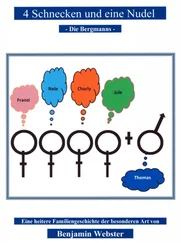Henry Cabot Lodge - Daniel Webster
Здесь есть возможность читать онлайн «Henry Cabot Lodge - Daniel Webster» — ознакомительный отрывок электронной книги совершенно бесплатно, а после прочтения отрывка купить полную версию. В некоторых случаях можно слушать аудио, скачать через торрент в формате fb2 и присутствует краткое содержание. Жанр: Биографии и Мемуары, История, foreign_edu, foreign_antique, foreign_prose, на английском языке. Описание произведения, (предисловие) а так же отзывы посетителей доступны на портале библиотеки ЛибКат.
- Название:Daniel Webster
- Автор:
- Жанр:
- Год:неизвестен
- ISBN:нет данных
- Рейтинг книги:5 / 5. Голосов: 1
-
Избранное:Добавить в избранное
- Отзывы:
-
Ваша оценка:
- 100
- 1
- 2
- 3
- 4
- 5
Daniel Webster: краткое содержание, описание и аннотация
Предлагаем к чтению аннотацию, описание, краткое содержание или предисловие (зависит от того, что написал сам автор книги «Daniel Webster»). Если вы не нашли необходимую информацию о книге — напишите в комментариях, мы постараемся отыскать её.
Daniel Webster — читать онлайн ознакомительный отрывок
Ниже представлен текст книги, разбитый по страницам. Система сохранения места последней прочитанной страницы, позволяет с удобством читать онлайн бесплатно книгу «Daniel Webster», без необходимости каждый раз заново искать на чём Вы остановились. Поставьте закладку, и сможете в любой момент перейти на страницу, на которой закончили чтение.
Интервал:
Закладка:
With Dr. Wood Webster remained only six months. He went home on one occasion, but haying was not to his tastes. He found it "dull and lonesome," and preferred rambling in the woods with his sister in search of berries, so that his indulgent father sent him back to his studies. With the help of Dr. Wood in Latin, and another tutor in Greek, he contrived to enter Dartmouth College in August, 1797. He was, of course, hastily and poorly prepared. He knew something of Latin, very little of Greek, and next to nothing of mathematics, geography, or history. He had devoured everything in the little libraries of Salisbury and Boscawen, and thus had acquired a desultory knowledge of a limited amount of English literature, including Addison, Pope, Watts, and "Don Quixote." But however little he knew, the gates of learning were open, and he had entered the precincts of her temple, feeling dimly but surely the first pulsations of the mighty intellect with which he was endowed.
"In those boyish days," he wrote many years afterwards, "there were two things which I did dearly love, reading and playing,—passions which did not cease to struggle when boyhood was over, (have they yet altogether?) and in regard to which neither cita mors nor the victoria laeta could be said of either." In truth they did not cease, these two strong passions. One was of the head, the other of the heart; one typified the intellectual, the other the animal strength of the boy's nature; and the two contending forces went with him to the end. The childhood of Webster has a deep interest which is by no means usual. Great men in their earliest years are generally much like other boys, despite the efforts of their biographers to the contrary. If they are not, they are very apt to be little prigs like the second Pitt, full of "wise saws and modern instances." Webster was neither the one nor the other. He was simple, natural, affectionate, and free from pertness or precocity. At the same time there was an innate power which impressed all those who approached him without their knowing exactly why, and there was abundant evidence of uncommon talents. Webster's boyish days are pleasant to look upon, but they gain a peculiar lustre from the noble character of his father, the deep solicitude of his mother, and the generous devotion and self-sacrifice of both parents. There was in this something prophetic. Every one about the boy was laboring and sacrificing for him from the beginning, and this was not without its effect upon his character. A little anecdote which was current in Boston many years ago condenses the whole situation. The story may be true or false,—it is very probably unfounded,—but it contains an essential truth and illustrates the character of the boy and the atmosphere in which he grew up. Ezekiel, the oldest son, and Daniel were allowed on one occasion to go to a fair in a neighboring town, and each was furnished with a little money from the slender store at home. When they returned in the evening, Daniel was radiant with enjoyment; Ezekiel rather silent. Their mother inquired as to their adventures, and finally asked Daniel what he did with his money. "Spent it," was the reply. "And what did you do with yours, Ezekiel?" "Lent it to Daniel." That answer well sums up the story of Webster's home life in childhood. All were giving or lending to Daniel of their money, their time, their activity, their love and affection. This petting was partly due to Webster's delicate health, but it was also in great measure owing to his nature. He was one of those rare and fortunate beings who without exertion draw to themselves the devotion of other people, and are always surrounded by men and women eager to do and to suffer for them. The boy accepted all that was showered upon him, not without an obvious sense that it was his due. He took it in the royal spirit which is characteristic of such natures; but in those childish days when laughter and tears came readily, he repaid the generous and sacrificing love with the warm and affectionate gratitude of an earnest nature and a naturally loving heart. He was never cold, or selfish, or designing. Others loved him, and sacrificed to him, but he loved them in return and appreciated their sacrifices. These conditions of his early days must, however, have had an effect upon his disposition and increased his belief in the fitness of having the devotion of other people as one of his regal rights and privileges, while, at the same time, it must have helped to expand his affections and give warmth to every generous feeling.
The passions for reading and play went with him to Dartmouth, the little New Hampshire college of which he was always so proud and so fond. The instruction there was of good quality enough, but it was meagre in quantity and of limited range, compared to what is offered by most good high schools of the present day. In the reminiscences of his fellow-students there is abundant material for a picture of Webster at that time. He was recognized by all as the foremost man in the college, as easily first, with no second. Yet at the same time Mr. Webster was neither a student nor a scholar in the truest sense of the words. He read voraciously all the English literature he could lay his hands on, and remembered everything he read. He achieved familiarity with Latin and with Latin authors, and absorbed a great deal of history. He was the best general scholar in the college. He was not only not deficient but he showed excellence at recitation in every branch of study. He could learn anything if he tried. But with all this he never gained more than a smattering of Greek and still less of mathematics, because those studies require, for anything more than a fair proficiency, a love of knowledge for its own sake, a zeal for learning incompatible with indolence, and a close, steady, and disinterested attention. These were not the characteristics of Mr. Webster's mind. He had a marvellous power of rapid acquisition, but he learned nothing unless he liked the subject and took pleasure in it or else was compelled to the task. This is not the stuff from which the real student, with an original or inquiring mind, is made. It is only fair to say that this estimate, drawn from the opinions of his fellow-students, coincided with his own, for he was too large-minded and too clear-headed to have any small vanity or conceit in judging himself. He said soon after he left college, and with perfect truth, that his scholarship was not remarkable, nor equal to what he was credited with. He explained his reputation after making this confession by saying that he read carefully, meditated on what he had read, and retained it so that on any subject he was able to tell all he knew to the best advantage, and was careful never to go beyond his depth. There is no better analysis of Mr. Webster's strongest qualities of mind than this made by himself in reference to his college standing. Rapid acquisition, quick assimilation of ideas, an iron memory, and a wonderful power of stating and displaying all he knew characterized him then as in later life. The extent of his knowledge and the range of his mind, not the depth or soundness of his scholarship, were the traits which his companions remembered. One of them says that they often felt that he had a more extended understanding than the tutors to whom he recited, and this was probably true. The Faculty of the college recognized in Webster the most remarkable man who had ever come among them, but they could not find good grounds to award him the prizes, which, by his standing among his fellows, ought by every rule to have been at his feet. He had all the promise of a great man, but he was not a fine scholar.
He was studious, punctual, and regular in all his habits. He was so dignified that his friends would as soon have thought of seeing President Wheelock indulge in boyish disorders as of seeing him. But with all his dignity and seriousness of talk and manner, he was a thoroughly genial companion, full of humor and fun and agreeable conversation. He had few intimates, but many friends. He was generally liked as well as universally admired, was a leader in the college societies, active and successful in sports, simple, hearty, unaffected, without a touch of priggishness and with a wealth of wholesome animal spirits.
Читать дальшеИнтервал:
Закладка:
Похожие книги на «Daniel Webster»
Представляем Вашему вниманию похожие книги на «Daniel Webster» списком для выбора. Мы отобрали схожую по названию и смыслу литературу в надежде предоставить читателям больше вариантов отыскать новые, интересные, ещё непрочитанные произведения.
Обсуждение, отзывы о книге «Daniel Webster» и просто собственные мнения читателей. Оставьте ваши комментарии, напишите, что Вы думаете о произведении, его смысле или главных героях. Укажите что конкретно понравилось, а что нет, и почему Вы так считаете.












